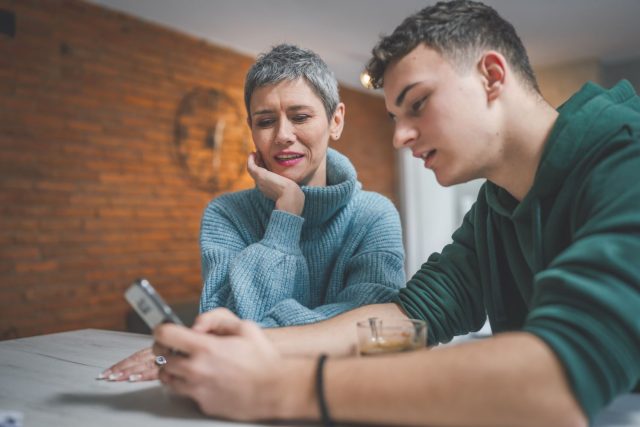The sun has been shining in San Francisco lately, but I can’t escape the dark clouds and heavy feeling around recent world events. Whether in the news or on social media, it is hard to avoid the disturbing and graphic images coming out of Israel and Gaza. Many children were either killed in the attack or taken hostage by the terrorist group Hamas. An unexpected attack that affects so many including children can be frightening for us as adults but also for children.
My fifth grader has a weekly assignment for history class where the students take a current event and write about how it impacts their life. This week, expectedly, the assignment was about the conflict in Israel and Gaza. He came home full of questions and eager to understand why this happened. Understanding this historical conflict is hard for most adults let alone explaining it, especially to an 11-year-old. So, how can we talk to our children about world events without inciting fear and anxiety?
AGE APPROPRIATENESS
Keeping the conversation age appropriate is essential. How I talk to my 11-year-old is different than how I talk to our older teens about this. I think it also helps to be proactive with these tough conversations. Our kids are surrounded by technology and information at their fingertips, so I would rather have a conversation with them instead of them learning about it from the Internet, peers, or on social media. As parents we want to answer their questions in an honest, accurate way, but also in a way that doesn’t give them more than they can digest for their developmental age. One way I like to start these conversations is with an open-ended question, such as “what do you know about what is going on in Israel right now?” This will give you an idea of what they already know and what they are curious about, which can help steer your conversation. Try to time these conversations so they aren’t right before bed. Watching videos or reading news articles about this before bed isn’t a good idea.
ACCURATE SOURCES
You don’t have to look farther than social media to know that conversations about this conflict conjure up intense emotions, so it is important to make sure the information you are providing is coming from trusted sources. It only took a few hours after this conflict started for accusations of false information and doctored photos to arise.
For older children who may have access to more information, it is important to make sure they are using trusted sources. Much to their dismay, TikTok is not a reliable news source. Common Sense Media recommends several news apps and sites specifically designed for kids.
For younger kids, KidNuz is a daily podcast that boils down even complex stories like this one in a school-aged appropriate way.
For teens, have them try NPR or HuffPost Teen. If they are looking for more than a headline, one of my favorite podcasts is The Daily by the New York Times, where they take a deeper dive into one of the top stories of the day. It is only 20 minutes, so it’s easy to fit in while exercising or driving.
EMPOWER THEM
Whatever age your children, empower them to talk about their feelings and ask questions. It is normal for them to be scared, so don’t dismiss the fear but rather try to address it.
One of the best ways we can do this is by carving out time and space for them to talk to us. If they are sensitive or get upset easily, then tailor your comments appropriately. We also don’t always have to have all the answers. If you don’t know an answer, use the opportunity to look it up together. It is also perfectly normal to share with them that you are saddened by what is happening. We can help empower them and their feelings by looking for a way to take action or help. It could mean a bake sale and sending the money raised to a humanitarian organization in the area. Teaching them that although this conflict is happening far away from us there are people affected here locally and organizations that need help. This sense of action or support can make it all feel a little less scary for children.
Ultimately you know your children best, so when discussing major news events that can be traumatizing, trust your gut on how much they can handle. For older kids, a complicated conflict far away can seem unimaginable to them, but helping them to be aware of bigger world events is an important part of growing up and becoming an adult.
Liz Farrell is the mother of three children and the founder of TechTalks, a consulting group to help schools and families have productive conversations around social media and technology. Comments: [email protected].




